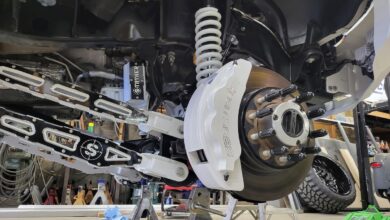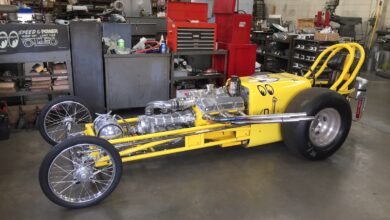LIQUI MOLY’s Profit Engine is Humming
LIQUI MOLY has maintained its course of growth. In 2018, the German oil and additive specialist’s sales rose to a record $610.4 million, a 2-percent increase compared to 2017. Revenue also grew by 2 percent to $59 million. This corresponds to a return on sales of 9.7 percent.
“In view of the economic environment, we achieved an acceptable result in a difficult year,” said Ernst Prost as LIQUI MOLY managing director. “Despite continuing uncertainties relating to economic policy, the company expects a positive result for 2019 as well.”
Last year, the extremely volatile price of crude oil proved to be the biggest cost driver, according to LIQUI MOLY. The base oils and additive packages that are important for the company followed the price trend on the crude oil market. While a barrel of crude oil cost an average of about $55 in 2017, the price one year later was around $70.
“In the production of lubricants, these raw material prices determine the total costs to a large extent,” Prost said.
LIQUI MOLY has an equity ratio of 83 percent with a balance sheet total of $196.4 million. In addition, there are no liabilities to banks, according to the company.
“We are running entirely on our own steam, are completely debt-free, and therefore do not have to pay any dividends or interest. This is important in order to be able to react to changes in the future or, even better, to be able to shape them ourselves,” Prost said. “This includes investments to secure the future of the company and thus almost 900 jobs.”
One such project is the construction of a state-of-the-art central warehouse near the oil factory. Approximately $28 million have been budgeted as the capital outlay. The new central warehouse with 50,000 pallet bays is to be built directly next to the existing tank storage facilities.
“This step is indispensable in order to always have sufficient goods available so that we can supply our customers reliably,” Prost said.
Since the beginning of the year, the delivery process has lacked the usual high reliability, according to LIQUI MOLY.
“The reason is not the stock situation, but the changeover to new software,” Prost added.
At the turn of the year, a program for enterprise-wide resource planning, a so-called ERP system, was put into operation. It is due to the highly complex nature of the matter, with its range of around 4,000 items and tens of thousands of customers in 150 countries, that not all processes are yet fully reliable. Nevertheless, the lubricant specialist recorded a 4-percent increase in sales from January to April.
“It’s hard to imagine what a grand start we would have made in 2019 with full delivery capability,” Prost said. “True to the motto of the Ulm innovation region, we want LIQUI MOLY to remain at the forefront of the South and of the world. That is our claim and our goal.”



